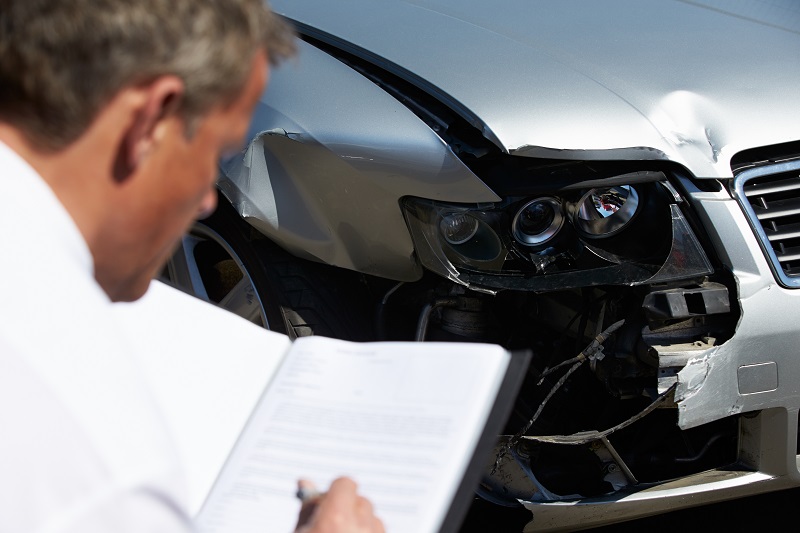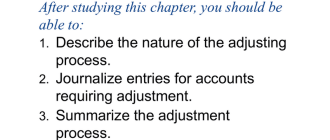
A Comparison: Dealing with Car Insurance Adjusters vs. Home Insurance Adjusters.
When it comes to insurance claims, homeowners and car owners often find themselves dealing with adjusters from both sides. It’s important to understand the differences between these adjusters and how they handle insurance claims.
Home insurance adjusters are experts who assess and evaluate claims related to damages to a residential property. They are specifically trained to deal with issues related to houses, apartments, and other residential structures. These adjusters take into account factors such as the extent of damage, the cost of repairs, and the impact on the homeowner’s quality of life.
Car insurance adjusters, on the other hand, specialize in assessing claims related to damages to vehicles. They are knowledgeable about different types of cars, from sedans to SUVs, and are familiar with the repair costs associated with various models. Car adjusters evaluate the extent of damage, determine the amount needed for repairs, and assess the impact on the vehicle owner’s mobility and daily routine.
While both home and car insurance adjusters fulfill similar roles of assessing claims, there are some key differences in their processes and approach:
Home insurance adjusters often visit the damaged property to assess the damage firsthand, take photographs, and gather evidence to support the claim. Car insurance adjusters typically rely on reports, photographs, and repair estimates provided by the policyholder.
Understanding Insurance Adjusters
When it comes to dealing with insurance, understanding the role of insurance adjusters is crucial. Whether it’s for car insurance or home insurance, adjusters play a key role in the claims process and can have a significant impact on the outcome of your insurance claim.
Insurance adjusters are professionals who work on behalf of insurance companies to assess and investigate insurance claims. They are responsible for determining the validity of a claim, evaluating the extent of the damage or loss, and negotiating a settlement with the policyholder.
There are different types of insurance adjusters, and the roles and responsibilities may vary depending on the type of insurance. Car insurance adjusters specialize in handling claims related to vehicle accidents, while home insurance adjusters deal with claims related to damage or loss to homes or property.
Dealing with insurance adjusters can sometimes be complex and require a certain level of expertise. They are trained to assess damages, estimate repair costs, negotiate settlements, and ensure that policyholders receive fair compensation for their claims.
It’s important to note that insurance adjusters work for insurance companies, and their primary goal is to represent the interests of the company. However, it’s also in their best interest to fairly evaluate and settle claims to maintain customer satisfaction and company reputation.
Understanding insurance adjusters can empower you as a policyholder to navigate through the claims process more effectively. By being knowledgeable about their roles and responsibilities, you can better communicate and negotiate with adjusters to ensure a fair and satisfactory outcome for your insurance claim.
Whether it’s a car insurance adjuster or a home insurance adjuster, knowing how they operate and what to expect can make a significant difference in your insurance claim experience. So take the time to understand insurance adjusters, and don’t hesitate to ask questions or seek professional assistance when needed.
Car Insurance Adjusters
When it comes to dealing with insurance adjusters, car insurance adjusters may have a slightly different approach compared to home insurance adjusters.
Car insurance adjusters are specifically trained to handle claims related to car accidents and vehicle damages. They have a deep understanding of auto insurance policies, coverage limits, and the various factors that can affect the value of a damaged car.
One key difference between car insurance adjusters and home insurance adjusters is the extent of their expertise. While home insurance adjusters deal with a wide range of property claims, car insurance adjusters focus solely on auto-related claims. This specialization allows car insurance adjusters to have a more in-depth knowledge of the industry and a better understanding of the unique challenges that come with assessing car damages and determining appropriate compensation.
Car insurance adjusters are also well-versed in the process of documenting and evaluating car damages. They know how to assess the extent of the damages, estimate repair costs, and calculate the depreciated value of a car, taking into account factors such as age, mileage, and pre-existing damage. This level of expertise helps ensure that car insurance adjusters can accurately evaluate the true value of a damaged car and provide fair compensation to policyholders.
In addition, car insurance adjusters are proficient in handling claims related to bodily injury resulting from car accidents. They have the knowledge and experience to evaluate medical records, consult with medical professionals, and assess the impact of injuries on the affected individuals’ daily lives. This allows them to determine appropriate compensation for medical expenses, pain and suffering, and other related damages.
Overall, car insurance adjusters play a crucial role in the claims process for car insurance policies. Their specialized knowledge, expertise, and understanding of the unique challenges of car-related claims make them essential in ensuring fair and accurate assessments and proper compensation for policyholders involved in car accidents or experiencing car damages.
Home Insurance Adjusters
When dealing with home insurance adjusters, there are some key differences to be aware of compared to car insurance adjusters. Home insurance adjusters are responsible for evaluating and determining the value of damages and loss in residential properties. They specialize in assessing and negotiating claims related to homes, apartments, and other residential properties.
Unlike car insurance adjusters who primarily focus on vehicle damages and accidents, home insurance adjusters have a wider scope of responsibilities. They assess various types of damage, including fire, water, storm, and structural damages. This requires them to have a deep understanding of construction and building materials, as well as the cost of repairs and replacements for different aspects of a home.
Home insurance adjusters often need to work closely with contractors, inspectors, and other professionals to accurately assess the extent of damage and formulate the appropriate compensation for the policyholder. They also need to take into account any special provisions or exclusions in the policy that may affect the coverage and claims process.
One crucial aspect of dealing with home insurance adjusters is documenting the damages thoroughly. This typically involves taking photographs, gathering receipts, and providing any necessary documentation to support the claim. Insurance adjusters rely on this evidence to determine the validity and value of the claim, so it’s essential to provide accurate and comprehensive documentation.
When compared to car insurance adjusters, home insurance adjusters may have a more complex and time-consuming claims process due to the nature of residential properties and the wide range of potential damages. It’s important for policyholders to remain patient and communicate openly with their adjuster throughout the process.
In conclusion, dealing with home insurance adjusters requires understanding their role in evaluating damages and negotiating claims related to residential properties. Their expertise in assessing various types of damages and working with professionals in the field is essential to determine accurate compensation for homeowners and ensure the claims process is fair and efficient.
Qualifications and Expertise
When it comes to qualifications and expertise, there are several key factors to consider in the comparison between car insurance adjusters and home insurance adjusters.
Car insurance adjusters typically have a background in the automotive industry, with knowledge of vehicle mechanics, repairs, and valuations. They are well-versed in assessing the extent of damages to automobiles and determining appropriate repair costs. Their expertise lies in understanding the intricacies of car insurance policies, including coverage limits, deductibles, and exclusions.
On the other hand, home insurance adjusters specialize in evaluating damages to residential properties. They are familiar with construction materials, building codes, and repair costs associated with homes. They possess a deep understanding of various types of dwellings, such as single-family homes, townhouses, and condominiums. Additionally, home insurance adjusters are knowledgeable about policy provisions related to dwelling coverage, personal property coverage, and liability coverage.
Both car insurance adjusters and home insurance adjusters undergo specific training and certification processes to enhance their expertise in their respective fields. Their qualifications often include completing courses in insurance principles, claims handling, and negotiation techniques. Furthermore, they stay updated on the latest industry trends and regulations to ensure they provide the most accurate and reliable assessments.
While car insurance adjusters and home insurance adjusters possess distinct qualifications and expertise, they both play vital roles in the insurance claims process. Regardless of whether you are dealing with car insurance adjusters or home insurance adjusters, it is important to collaborate with professionals who are knowledgeable, experienced, and dedicated to protecting your interests.
Claim Settlement Differences
When it comes to claim settlements, there are key differences between dealing with car insurance adjusters versus home insurance adjusters. These differences can greatly impact the outcome of your claim and the overall experience you have with the insurance company.
Comparison:
| Dealing with car insurance adjusters involves claims related to accidents, damage, or theft of vehicles. | Home insurance adjusters handle claims related to property damage, loss, or theft of personal belongings, and liability claims for incidents that occur within the home. |
| Car insurance adjusters often rely on detailed vehicle inspections and evaluations to assess the extent of damage and calculate settlements. | Home insurance adjusters may need to assess both the structural damage to the property and the value of the personal belongings lost. |
| Claim settlements in car insurance often involve repairs or replacement of the vehicle, payment for medical expenses and lost wages, and potentially compensation for pain and suffering. | Home insurance claim settlements can include repairs to the property, replacement of damaged personal belongings, and additional living expenses if the property is uninhabitable. |
It is essential to understand the differences in dealing with car insurance adjusters versus home insurance adjusters, as this knowledge can help you navigate the claims process and ensure a fair settlement for your specific situation.
Investigation Process
When it comes to the investigation process, there is a clear comparison between dealing with car insurance adjusters versus home insurance adjusters. Both processes involve evaluating the extent of damages, determining liability, and establishing the appropriate compensation for the insured party.
However, there are some key differences in the investigation process for car insurance and home insurance. A car insurance investigation typically involves assessing the damage to the vehicle, obtaining photographs, and collecting witness statements if necessary. On the other hand, a home insurance investigation may require assessing the damage to the property, conducting interviews with the homeowner and neighbors, and inspecting the premises.
Another comparison is the timeframe in which the investigation is completed. Car insurance investigations often have a quicker turnaround time due to the nature of the damages and the urgency for the insured to get back on the road. Home insurance investigations, on the other hand, may take longer due to the complexity of assessing property damage and coordinating repairs.
During the investigation process, it is crucial to provide accurate and detailed information to the insurance adjuster. This includes providing documentation such as police reports, repair estimates, and any other relevant evidence. It is also important to cooperate fully with the adjuster and answer any questions they may have to ensure a smooth and efficient investigation.
In conclusion, while there are similarities in the investigation process for car insurance and home insurance, there are also notable differences. Understanding the comparison between dealing with car insurance adjusters versus home insurance adjusters can help individuals navigate the claims process more effectively and ensure a fair and timely resolution.
Communication Styles
When it comes to dealing with car insurance adjusters versus home insurance adjusters, one of the key differences lies in their communication styles. Understanding these differences can help you navigate the claims process more effectively.
Car Insurance Adjusters:
- Car insurance adjusters often follow a more formal communication style. They are focused on gathering detailed information and evidence related to the car accident or damage.
- They may ask specific questions about the incident, such as the time and location, the parties involved, and the damages sustained.
- Careful documentation is crucial in car insurance claims, and adjusters will often request supporting documents such as police reports, repair estimates, and medical records.
- Car insurance adjusters may rely more on phone calls and emails to communicate with policyholders and other involved parties. They aim to ensure accuracy and efficiency in their investigation.
Home Insurance Adjusters:
- Home insurance adjusters may have a more informal communication style. They emphasize empathy and understanding, as home insurance claims often involve personal belongings and emotional attachments.
- They may ask about the extent of the damage, the items affected, and any temporary repairs that have been made to prevent further damage.
- In addition to gathering information, home insurance adjusters often provide guidance on documenting losses, filing claims, and organizing repairs or replacements.
- Home insurance adjusters may be more inclined to schedule in-person meetings or home visits to assess the damage firsthand and provide a personal touch to the claims process.
Understanding these differences in communication styles can help you know what to expect when dealing with car insurance adjusters versus home insurance adjusters. By being prepared and providing accurate information, you can facilitate a smoother and more efficient claims process.
Negotiation Techniques
When it comes to dealing with car insurance adjusters versus home insurance adjusters, there are some key negotiation techniques that can help you get the best outcome. Both types of adjusters have their own unique considerations and approaches, so it’s important to understand the differences and adapt your strategies accordingly.
Home Insurance Adjusters:
When negotiating with home insurance adjusters, it’s crucial to emphasize the importance of your home and the value of the property and possessions inside. Consider the following techniques:
| Document Everything | Keep detailed records of all damages and losses, including photos and receipts for repairs or replacements. |
| Be Prepared for Inspections | Home adjusters will likely want to inspect the property, so make sure everything is clean and well-maintained. |
| Provide Proof of Value | Show receipts or appraisals for valuable items to demonstrate their worth. |
| Highlight the Emotional Impact | Explain how the damage has affected your family and their quality of life. |
Car Insurance Adjusters:
When negotiating with car insurance adjusters, the focus is on the vehicle and the cost of repairs. Consider the following techniques:
| Gather Evidence | Collect evidence such as photos, repair estimates, and medical bills to support your claim. |
| Know the Value of Your Car | Research the market value of your car to ensure you are being offered a fair settlement amount. |
| Focus on Safety Concerns | Highlight any safety hazards or issues that may have resulted from the accident. |
| Consider Legal Options | If necessary, consult with an attorney who specializes in car insurance claims to explore legal recourse. |
By understanding these negotiation techniques, you can effectively navigate the differences between home and car insurance adjusters to ensure you receive the best possible outcome for your claim.
Timeframe for Claim Resolution
When it comes to the timeframe for claim resolution, there is a noticeable difference between car insurance adjusters and home insurance adjusters.
Car insurance adjusters are generally quick in handling claims and resolving them in a timely manner. This is because car insurance claims often involve more time-sensitive matters, such as vehicle repairs and rental car arrangements. Car insurance adjusters understand the importance of getting policyholders back on the road as soon as possible.
On the other hand, home insurance adjusters may take longer to resolve claims due to the nature of the insurance. Home insurance claims often involve more complex situations, such as property damage assessments and contractor estimates. Additionally, the process may require interactions with multiple parties, such as homeowners’ associations or local inspectors.
It’s important to note that these timeframes can vary depending on the specific circumstances of each claim. However, car insurance adjusters generally have a faster turnaround time compared to home insurance adjusters.
Regardless of the type of insurance, dealing with adjusters can be a time-consuming process. However, understanding the differences in the timeframe for claim resolution can help in managing expectations and navigating the claims process.
Policy Coverage Variation
When it comes to insurance coverage, there can be variations between home insurance and car insurance policies. It is important to understand these differences in order to make informed decisions and ensure you are adequately protected.
Comparison: Home insurance policies typically provide coverage for your dwelling, personal property, liability, and additional living expenses in the event of a covered loss, such as fire, theft, or natural disasters. On the other hand, car insurance policies generally cover damage to your vehicle, as well as liability for injuries or damages you may cause to others in an accident.
Dealing with Home Insurance Adjusters: Home insurance adjusters assess the damage and determine the amount a policyholder is eligible to receive for repairs or replacement. They will evaluate the cause of the loss and review the policy terms to determine coverage. It is important to provide documentation and evidence of the loss to support your claim.
Dealing with Car Insurance Adjusters: Car insurance adjusters assess the damage to your vehicle and coordinate repairs or replacement. They may also investigate the accident and determine liability. It is essential to promptly report the accident to your insurance company and provide accurate and detailed information to the adjuster.
Understanding the coverage variation between home and car insurance policies is crucial. By knowing what is covered and how claims are handled, you can ensure that you have the right protection for your specific needs and be prepared when dealing with insurance adjusters.
Claims Handling Guidelines
When it comes to dealing with car insurance adjusters versus home insurance adjusters, there are some important guidelines to keep in mind:
- Document the damages: Whether it’s a car accident or a damage to your home, it is crucial to document the damages by taking pictures and writing down detailed descriptions.
- Contact your insurance company promptly: Notify your insurance company about the claim as soon as possible, providing them with all the necessary information and documentation.
- Cooperate with the adjuster: Respond to any inquiries or requests from the adjuster in a timely manner. Provide them with all the information they need to process your claim.
- Review your insurance policy: Familiarize yourself with the terms and conditions of your insurance policy to understand what is covered and what is not.
- Keep track of expenses: If you incur any expenses related to the claim, such as rental car costs or temporary accommodation, keep all receipts and documents for reimbursement.
- Be honest and consistent: Provide accurate and consistent information throughout the claims process. Any inconsistencies or dishonesty could jeopardize your claim.
- Follow up on the progress: Stay in touch with the adjuster to check on the progress of your claim and ensure that all necessary steps are being taken to resolve it.
- Consider professional assistance: If you encounter difficulties or disputes with the adjuster, you may want to seek professional assistance from a lawyer or a public adjuster.
By following these claims handling guidelines, you can navigate the insurance claims process effectively, regardless of whether it involves car insurance adjusters or home insurance adjusters.
Appealing Claim Decisions
When it comes to appealing claim decisions, there are some key differences between dealing with car insurance adjusters and home insurance adjusters. Understanding these differences can help you navigate the process more effectively.
Car insurance adjusters often have more experience and knowledge when it comes to assessing damages and determining the value of a claim. Their expertise in assessing the cost of car repairs and replacements gives them an advantage when it comes to valuing your claim. However, this can also make it more challenging to appeal a car insurance claim decision.
Home insurance adjusters, on the other hand, may not have the same level of expertise when it comes to assessing damages to your property. They may not be as familiar with the intricacies of home construction or the cost of repairs and replacements. This can work in your favor when appealing a home insurance claim decision, as there may be more room for negotiation and presenting your case.
When appealing a claim decision, it’s important to gather all necessary documentation to support your case. This includes estimates from contractors or repair shops, photographs of damages, and any other relevant information. Presenting a clear and organized case can greatly increase your chances of successfully appealing a claim decision.
It’s also crucial to understand the specific appeals process outlined by your insurance company. This may involve submitting a formal appeal letter, providing additional evidence, or requesting a review by a higher authority within the company. Familiarizing yourself with these steps can help you navigate the process smoothly and effectively.
In both car insurance and home insurance claim appeals, having an experienced attorney or public adjuster on your side can be beneficial. These professionals can guide you through the process, advocate for your interests, and help you present a strong case. Their expertise can be especially valuable when dealing with complex claims or insurance companies that are unwilling to negotiate.
In conclusion, appealing claim decisions can be a challenging process, whether it’s with car insurance adjusters or home insurance adjusters. Understanding the differences between the two and gathering the necessary documentation can help you navigate the process more effectively. Consider seeking professional assistance to increase your chances of a successful appeal.
Legal Recourse
When it comes to legal recourse, the differences between dealing with car insurance adjusters versus home insurance adjusters can also be significant. Home insurance coverage often includes liability protection, which can come into play if someone is injured on your property and decides to sue you. Car insurance coverage may also include bodily injury liability protection, but the circumstances surrounding accidents and injuries on the road can be more complicated.
If you find yourself in a situation where legal action is necessary, it is important to understand the specific policies and guidelines set forth by your insurance provider. Home insurance adjusters may be more accustomed to handling liability claims and may have a better understanding of the legal process involved. They may be able to provide guidance and assistance throughout the legal proceedings.
On the other hand, car insurance adjusters may have more experience dealing with accidents and injuries on the road and may be better prepared to handle the complexities involved. They may have relationships with legal professionals or access to resources specifically tailored to car insurance claims. Their expertise in this area may be beneficial when it comes to navigating the legal system and seeking appropriate compensation.
However, it is important to note that both home insurance adjusters and car insurance adjusters will ultimately work within the framework of their respective policies and coverage limits. Whether you are dealing with a home insurance claim or a car insurance claim, it is crucial to review your policy, understand your rights and responsibilities, and consult with legal professionals when necessary.
In conclusion, when it comes to legal recourse, the differences between dealing with home insurance adjusters versus car insurance adjusters can impact the overall process and outcome. Understanding the specific policies and guidelines set forth by your insurance provider and seeking legal advice when necessary are both important steps to take to protect your interests and ensure a fair resolution.
Credibility and Reputation
When it comes to the credibility and reputation of car and home insurance adjusters, there are a few key differences to consider.
Car insurance adjusters are often seen as experts in their field, with extensive knowledge of the industry. They are trained to assess car damages and determine the cost of repairs or replacement. This expertise gives them credibility and a reputation for being thorough and accurate in their assessments.
On the other hand, home insurance adjusters have a different set of skills and expertise. They specialize in assessing damages to homes and determining the cost of repairs or rebuilding. While they may not have the same level of technical knowledge as car insurance adjusters, they are highly trained in evaluating property damages and working with homeowners to reach fair settlements.
When it comes to credibility, both car and home insurance adjusters rely heavily on their reputation. Positive word-of-mouth referrals and customer testimonials are important for gaining credibility in the industry. Adjusters who consistently provide fair and accurate assessments, while also demonstrating empathy and professionalism, are more likely to have a strong reputation.
In conclusion, both car and home insurance adjusters play crucial roles in helping individuals recover from unexpected events. While car insurance adjusters may have a higher level of technical expertise, home insurance adjusters bring their own unique set of skills to the table. Ultimately, it is important to choose an adjuster who has a proven track record of credibility and a positive reputation in order to ensure a fair and satisfactory claims process.
Question-answer:
What is the difference between car insurance adjusters and home insurance adjusters?
Car insurance adjusters and home insurance adjusters are both professionals who assess and evaluate damages, but they specialize in different areas. Car insurance adjusters handle claims related to car accidents, while home insurance adjusters deal with claims related to damage to homes.
Do car insurance adjusters and home insurance adjusters require different skills?
Yes, car insurance adjusters and home insurance adjusters require different skills due to the differences in their areas of specialization. Car insurance adjusters need to have a strong understanding of automotive repair and estimation, while home insurance adjusters need knowledge of construction and property assessment.
Are the claim processes for car insurance and home insurance similar?
The claim processes for car insurance and home insurance can be similar in some aspects, but they also have differences. Both processes involve assessing damages, gathering evidence, and negotiating settlements. However, the specific requirements and documentation needed may vary between car and home insurance claims.
Are car insurance adjusters or home insurance adjusters easier to deal with?
The ease of dealing with car insurance adjusters or home insurance adjusters can vary depending on the specific situation and the insurance company involved. Some people may find car insurance adjusters easier to deal with because car damages can be more straightforward to assess, while others may prefer working with home insurance adjusters due to their expertise in property damage claims.
Can I hire my own adjuster for car insurance or home insurance claims?
Yes, you can hire your own adjuster for car insurance or home insurance claims. These adjusters, known as private or public adjusters, work independently from insurance companies and can help you navigate the claims process. However, it’s important to note that hiring a private adjuster may come with additional costs.
What is the difference between car insurance adjusters and home insurance adjusters?
Car insurance adjusters and home insurance adjusters are both professionals who assess and evaluate insurance claims, but they specialize in different types of claims. Car insurance adjusters handle claims related to vehicle damage and accidents, while home insurance adjusters deal with claims for property damage or loss due to incidents such as fire, theft, or natural disasters.
Do car insurance adjusters and home insurance adjusters follow the same claim process?
While car insurance adjusters and home insurance adjusters follow similar claim processes, there may be some variations. Both adjusters will typically investigate the claim, assess the damages, gather relevant information, and determine the coverage and settlement amount. However, the specific procedures and documentation required may differ depending on the nature of the claim, such as the type of damage or the policy provisions.







